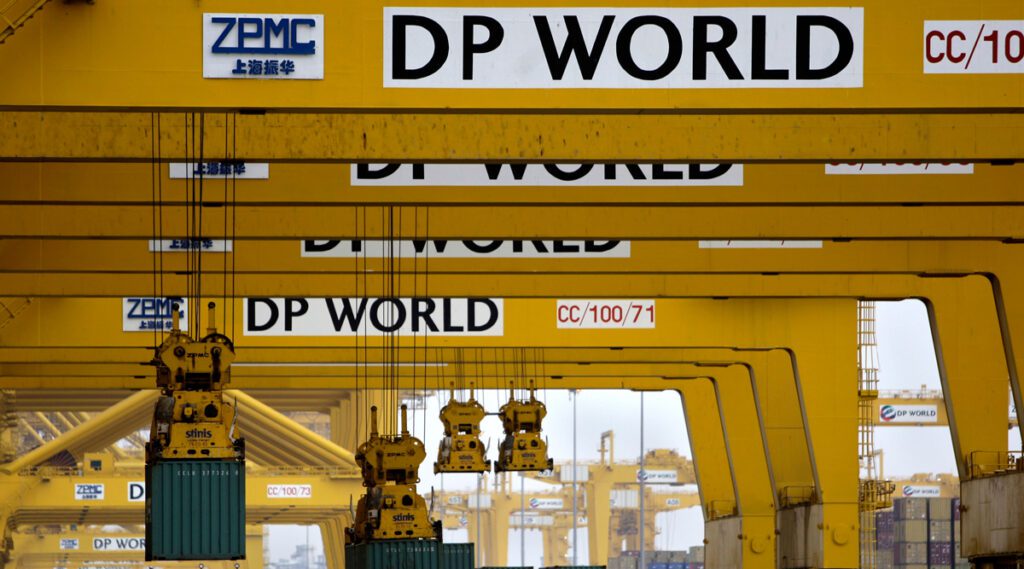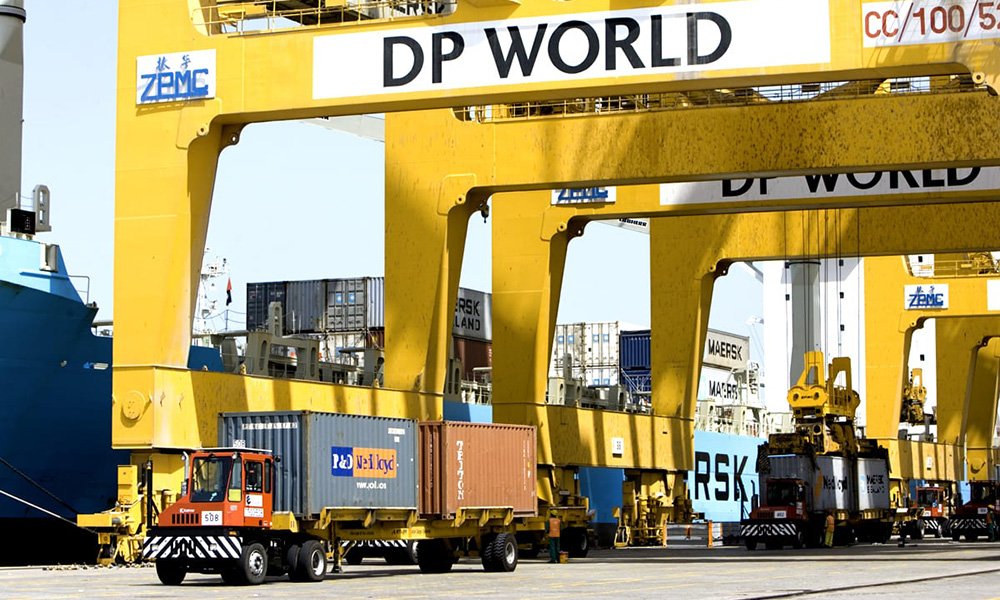DP World Dubai stands as a symbol of the UAE’s ambition to become a global trade and logistics hub. From its humble beginnings in the early 1970s, the company has grown into one of the world’s leading port operators and logistics providers. Today, DP World Dubai not only facilitates the movement of goods across continents but also drives innovation in global trade, leveraging cutting-edge technology and strategic partnerships.
This article explores DP World Dubai’s history, key facilities, technological innovations, sustainability initiatives, global reach, and future outlook. It aims to provide a clear and comprehensive understanding of how this company has shaped international trade and what makes it a global leader.
A Humble Beginning: The Birth of DP World
DP World Dubai’s story begins in 1972 with the establishment of the Dubai Ports Authority (DPA). At that time, the UAE was rapidly growing but lacked the infrastructure to support international trade efficiently. Port Rashid was constructed as the first commercial port in Dubai, serving as the gateway for imports and exports.

In 1979, Dubai inaugurated Jebel Ali Port, a larger and more advanced facility designed to handle increasing maritime traffic. The port was strategically located to serve as a regional hub connecting Asia, Africa, and Europe. This early infrastructure investment laid the groundwork for DP World Dubai’s future global success.
The company’s early years focused on building operational efficiency and expanding capacity. Through careful planning and modernization, these ports gradually became central to Dubai’s economic growth and trade capabilities.

The Formation of DP World
DP World Dubai, as it is known today, was officially formed in 2005 through a strategic merger of the Dubai Ports Authority and Dubai Ports International (DPI). This consolidation was aimed at streamlining operations, enhancing competitiveness, and extending Dubai’s reach in global trade.
The merger enabled DP World Dubai to not only manage domestic port operations but also expand internationally. The company rapidly transformed from a regional port operator into a global logistics powerhouse. It leveraged Dubai’s strategic geographic location and its modern ports to offer world-class services to shipping lines and traders.
Jebel Ali Port: The Heart of DP World Dubai
Jebel Ali Port is the flagship facility of DP World Dubai and one of the largest man-made harbors in the world. Covering an area of 57 square kilometers, the port is designed to handle millions of containers annually with high efficiency.
The port’s infrastructure includes deep-water berths, automated container terminals, and advanced cargo handling systems. These features allow DP World Dubai to operate one of the fastest and most efficient ports globally.
Its strategic location also connects it to over 150 ports worldwide, making Jebel Ali a critical node in the global supply chain. The port has not only served Dubai’s economic growth but also positioned the UAE as a global trade hub.
Expansion Beyond Dubai: A Global Presence
While Jebel Ali Port remains central to DP World Dubai’s operations, the company has grown into a global logistics giant. DP World operates terminals in over 40 countries across six continents, including Asia, Africa, Europe, and the Americas.
This global presence enables DP World Dubai to offer integrated supply chain solutions. From container handling to logistics services, the company facilitates the movement of goods across multiple regions. By combining global reach with local expertise, DP World Dubai ensures seamless trade connectivity.
The expansion also allows DP World Dubai to diversify its operations and mitigate risks associated with regional trade fluctuations. By managing ports and logistics hubs worldwide, the company strengthens its influence on global trade patterns.
Technology and Innovation at the Core
Innovation is a cornerstone of DP World Dubai’s success. The company invests heavily in modern technologies to enhance efficiency, reduce costs, and improve customer experience.
Some key technological initiatives include:
- Automated Cargo Handling: DP World Dubai uses advanced robotics and automated systems to manage cargo more efficiently, reducing turnaround time and operational errors.
- Blockchain Platforms: The company has implemented blockchain-based trade solutions to improve transparency, security, and tracking of goods.
- Smart Logistics Solutions: DP World Dubai integrates IoT devices, AI analytics, and real-time monitoring to optimize port operations and global supply chain management.
These innovations position DP World Dubai as a forward-thinking logistics leader, capable of meeting the demands of rapidly evolving global trade.
Strategic Partnerships and Collaborations
DP World Dubai recognizes that collaboration is key to success in global trade. The company partners with governments, businesses, and international organizations to enhance connectivity and improve infrastructure.
These partnerships focus on:
- Trade Facilitation: Streamlining customs and port operations to reduce delays.
- Infrastructure Development: Expanding ports, rail networks, and logistics hubs to support global trade.
- Sustainability: Promoting green initiatives and environmentally friendly operations.
By leveraging these collaborations, DP World Dubai not only strengthens its own operations but also contributes to global trade efficiency and economic growth.
Sustainability Initiatives
Sustainability is a priority for DP World Dubai. The company implements initiatives to minimize environmental impact while improving operational efficiency. Key efforts include:
- Energy Efficiency: Ports are equipped with energy-saving equipment and renewable energy sources.
- Waste Reduction: Programs to reduce, reuse, and recycle materials used in port operations.
- Green Logistics: Encouraging the use of eco-friendly transportation options for cargo.
These initiatives reflect DP World Dubai’s commitment to responsible growth and set a benchmark for other logistics companies worldwide.

Challenges in Global Operations
Despite its successes, DP World Dubai faces challenges typical of global logistics companies. These include:
- Geopolitical Risks: Regional conflicts and trade tensions can disrupt operations.
- Economic Uncertainties: Global market fluctuations affect shipping volumes and profitability.
- Technological Disruption: Rapid changes in logistics technology require continuous adaptation.
DP World Dubai mitigates these challenges through proactive risk management, diversification of operations, and ongoing investment in technology and infrastructure.
Future Outlook
DP World Dubai’s future looks promising. The company continues to expand its global footprint, invest in technological innovation, and enhance trade efficiency.
Future initiatives include:
- Digital Transformation: Expanding smart logistics platforms and AI-powered operations.
- Global Expansion: Targeting emerging markets and new strategic port locations.
- Sustainable Growth: Increasing investments in renewable energy and eco-friendly operations.
By focusing on innovation, sustainability, and global connectivity, DP World Dubai is well-positioned to remain a leader in international trade for decades to come.
Conclusion
DP World Dubai’s journey from a local port operator to a global logistics leader is a story of vision, strategy, and innovation. Its growth has transformed Dubai into a global trade hub, connecting markets across continents and facilitating international commerce.
With continued investment in technology, sustainability, and strategic partnerships, DP World Dubai is set to play an even greater role in shaping the future of global trade. The company exemplifies how a regional player can become a global powerhouse through innovation, leadership, and a commitment to excellence.
Do follow UAE Stories on Instagram












